Global Site
Breadcrumb navigation
Message for students 2024:Hemant Prasad
March 19, 2024
Contributing to creating a better society with Optical Fiber Sensing
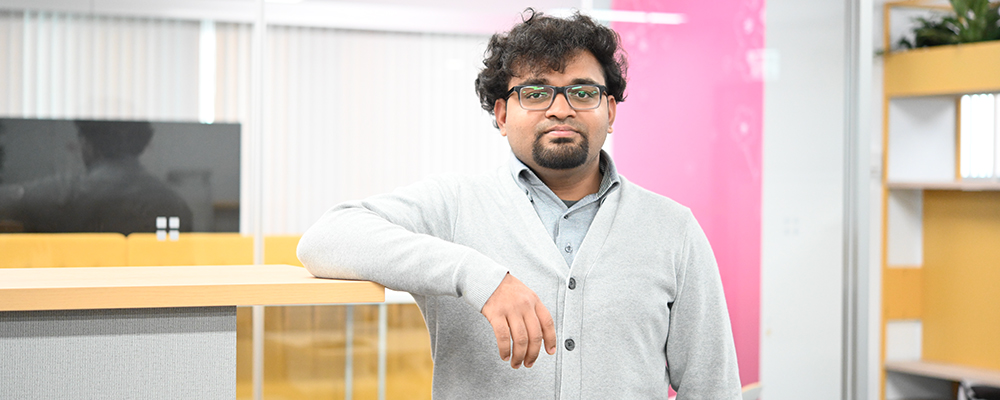
Researcher, Digital Technology Development Research Laboratories
Hemant Prasad
Hemant Prasad obtained his master's degree from the Indian Institute of Technology Bombay. He specialized in Geoinformatics and Natural Resources Engineering, applying satellite image processing and artificial intelligence techniques to investigate natural resources and identify the impacts of global warming and glacier melting. He joined NEC in January 2020.
Development of traffic monitoring applications using fiber optic sensing technology.
When I first joined NEC, I was part of the Optic Fiber Sensing group within the Data Science Laboratories. However, this group later shifted to the Digital Technology Development Laboratories under the Global Innovation Business Unit. Since then, I have been focusing on optic fiber sensing. This technology uses fiber optic cables deployed for communication, such as internet connectivity, laid along highways as sensors to monitor traffic flow.
The sensors used so far, like cameras, are fixed in position and have a narrow field of view, making them expensive to install, especially on highways where they are placed strategically. In contrast, fiber optic cables can cover all areas of a road.
My research focuses on enhancing the accuracy and robustness of traffic monitoring systems using this technology. We aim to collect detailed information about road traffic by extracting data from these fiber sensors, including vehicle speed, count, density, and lane occupancy.
Our goal is to support intelligent transportation systems worldwide. Roads are fundamental to human life, so making highways and roads more efficient and smoother is extremely important. This belief drives our commitment to developing technology that significantly improves transportation infrastructure. We are working on this technology for many highways in Japan, but it also applies to other countries.
Our research work is regularly compiled and published as research papers in international and domestic conferences. I have had the opportunity to present my work at ITS World Congress, one of the most influential comprehensive international congresses in transportation and mobility. Our team has been consecutively awarded the best paper in 2022 and 2023 for our paper based on our research work.
An Environment for Open Opinions and Learning through Feedback
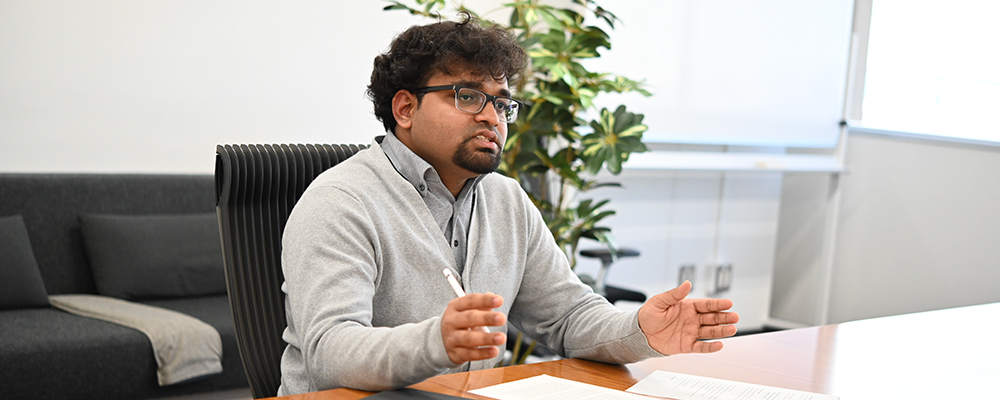
Before joining, I knew that NEC was a global technology leader, possessing advanced technologies like biometric authentication and submarine cable systems. I also understood that NEC had solutions for space development, as evidenced by their numerous joint projects with JAXA. My interest in NEC grew after hearing positive feedback about the work environment and research from my university seniors who worked at NEC.
Additionally, living in Japan was one of my dreams. Since childhood, I have been exposed to Japanese culture through anime and always thought Japan was a wonderful place to live and work. I was particularly attracted to the country's thriving engineering and technology companies.
Before coming to Japan, NEC provided me with a two-month Japanese language training, during which I learned a lot about the culture and work environment. Additionally, due to company provided dormitory, I was able to settle into life in Japan without worries.
My current work directly impacts transportation, a crucial element of our society. Improving and providing efficient and smooth traffic and transportation will flow benefit society. Not only are highways and roads used for travel, but everyday goods and materials are also transported through them, necessitating efficiency and smoothness. Early detection of traffic accidents and congestion can also reduce carbon emissions, and this field, which may lead to predictive maintenance of bridges and structures or autonomous driving, is very fulfilling for me.
Regarding team members, as everyone is proficient in English, there are no communication issues. The opportunity to discuss my research with experts in other fields is very stimulating. Seeing the research of many teams and discussing potential collaborations is immensely beneficial, offering numerous learning opportunities and insights into career paths.
One thing I appreciate about working at NEC is the ability to communicate my thoughts to my supervisors and team members. This leads to receiving a lot of feedback, enabling me to learn and grow. I can generate new ideas without feeling embarrassed. Additionally, the flexibility to choose between telework and office work and flexible working hours allows me to work at my own pace, which is excellent.
Aiming to Advance Research and Contribute to Smart City Development
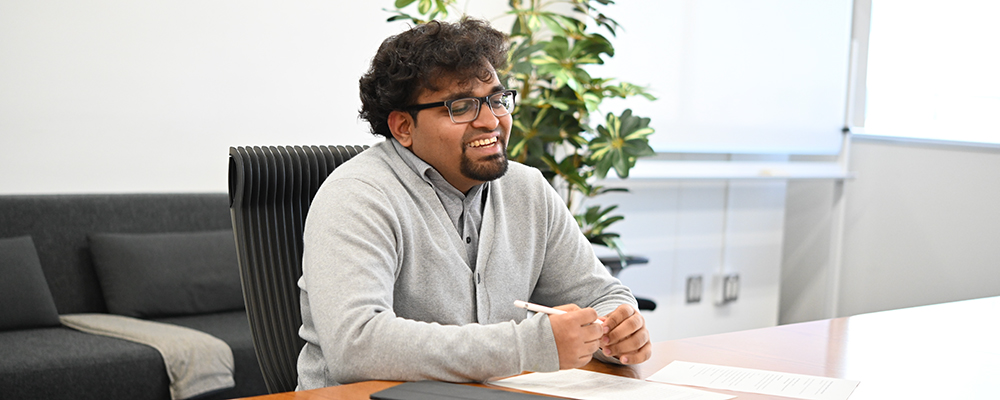
I am looking to advance my current research for my next step. I want to achieve more precise monitoring and sensing, not just on highways but also in urban settings. While traffic on roads is constant, urban areas have many intersections and more complex traffic patterns. Additionally, cities have extensive fiber optic networks and various noise factors. My next challenge is implementing monitoring in such diverse environments, particularly in smart cities.
Regarding my long-term career, I must discuss with my family whether to stay in Japan or return to India. If I decide to stay in Japan, I will aspire to take on more responsibility, such as leading a team of researchers.
What I would say to students who want to become researchers like me is simple.
'Take more risks and try to grab the opportunity as much as possible.'
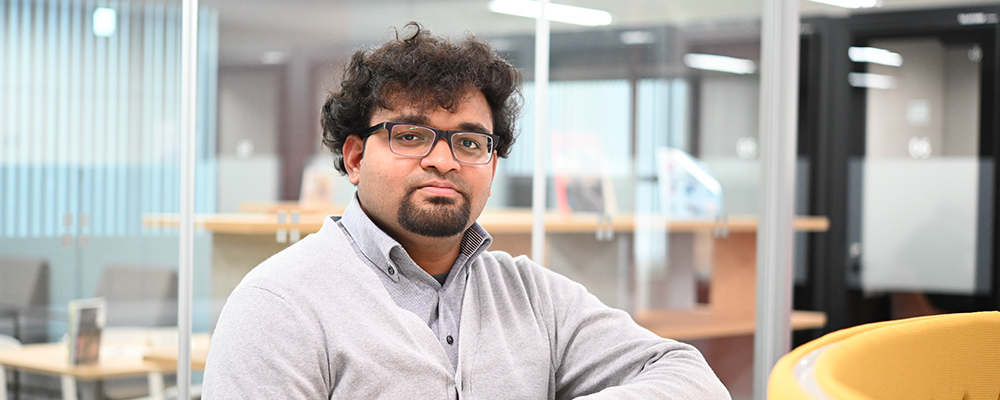
- ※The information posted on this website is the information at the time of publication.
A day at work
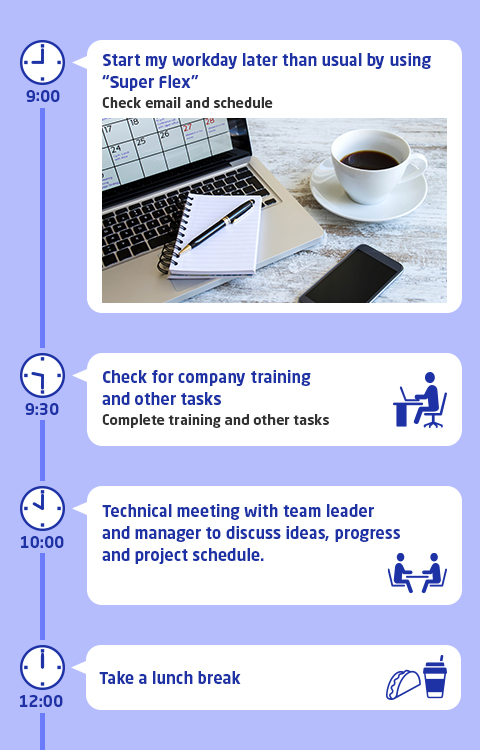
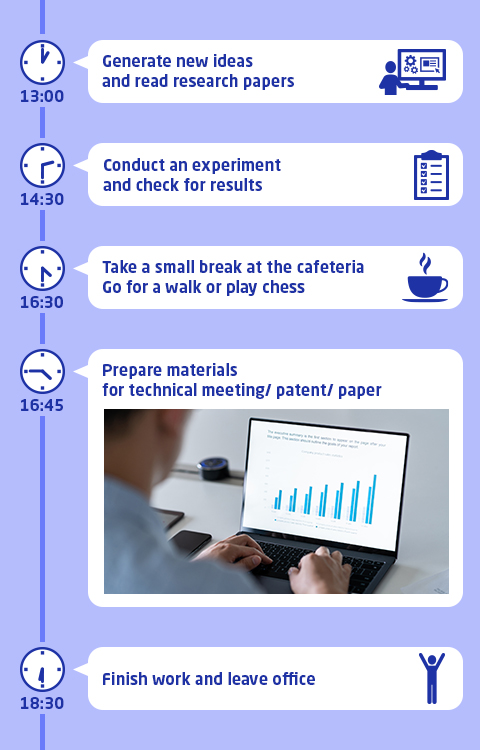
Message to my past self in my school days
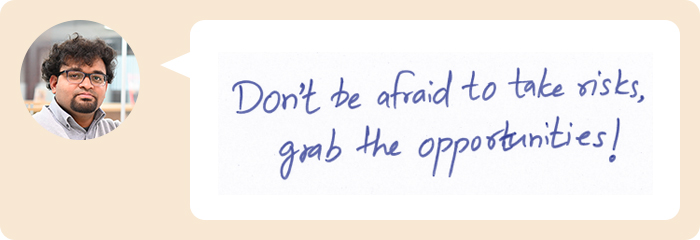
Private column
I greatly respect Japanese history and culture and have been fascinated by samurais, their honor, discipline, and bravery since childhood. I am learning Tenshin Shoden Katori Shinto-Ryu, one of the traditional martial arts in Japan. It's been a year and a half since I started practicing this martial art, and have been training in swordsmanship. I practice at the dojo on weekends, and on weekdays, I read books about martial arts.
Budo helps me to learn patience and discipline through the simple act of repetition of techniques. Executing simple moves like a clean-cut require focus, a lot of training, and understanding of one’s mind and body. Practicing budo also provides me an opportunity to communicate and interact with Japanese people at my dojo. So I can practice my Japanese language and try to learn more about Japanese culture.
I also enjoy playing chess and have been playing online chess regularly since the pandemic. Chess clears my mind and helps me learn strategies.

